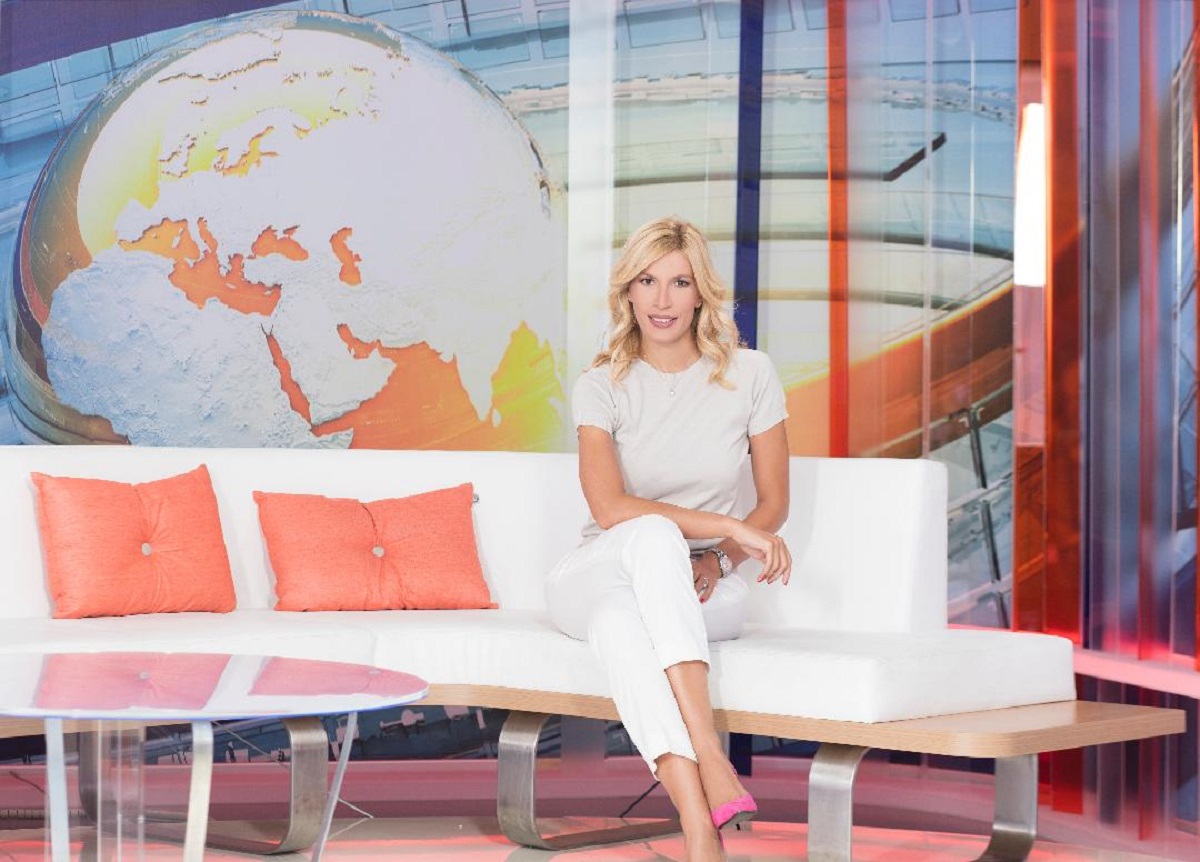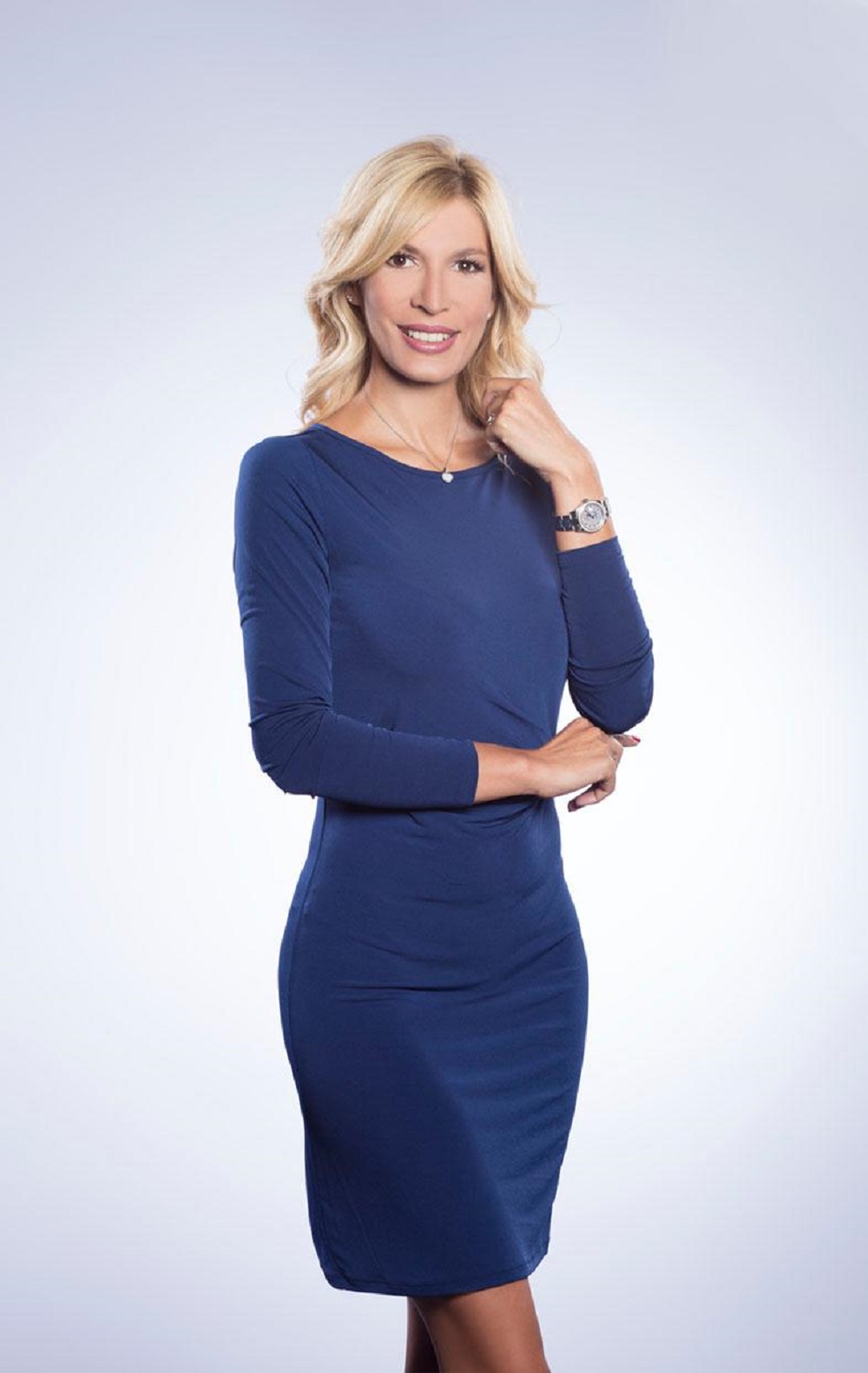By Žikica Milošević
Minja Miletić is not to be messed around with. In a matter of seconds, this beautiful and kind anchor, which is usually the first impression people have of her, will tear you apart in pieces with her combination of friendly persisentce and investigative journalism, while driving the point home by throwing a bunch of facts at you. Minja quickly became one of the most popular reporters at N1 and her interviews are always carefully watched because you never know how explosive they might get, in keeping with the best tradition of BBC’s Hard Talk, or similar shows on CNN.

You became famous even among those people who are not interested in politics when you ‘destroyed’ Miša Vacić in the morning show. Suddenly, people thought of you as someone who had facts in their little finger and made unprepared interoluctors feel like they were stuck between a rock and a hard place. How do you feel in this new ‘role’?
That interview got a lot of publicity both for what transpired in the studio and what happened after it. It is not that common that that a state official is sacked after being on television. Frankly, I believe that I have done much better interviews than that one, but it was not realistic to expect that they would attract such public interest as the interview with Miša Vacić. I am always trying to know the facts well, because I believe journalists are obligated to do so. It is our job to ask and to check what we are being told at any given moment and on any given topic, so that we can offer facts to the viewers on the basis of which each individual will make their own conclusions.
I don’t like this trend where a journalist is reduced to being a mere transmitter of what a person is saying because I am never going equalize journalism to passively holding a voice recorder in my hand. I don’t like cliches but can you recall how many times you have heard the phrase that “we are living in a time when we are surrounded by information”. If that is really so, and I do believe it is, how did it happen that the media got into such state today?
What is tragic in all of this is that tabloid journalism is becoming dominant which is very perfidiously and superficially justified with the sentence “it is what our readers want”. Apparently, people want to read tabloids and we choose to ignore the fact that the circulation figures of daily newspapers have been declining on a daily basis. So, following that logic, people like reading tabloids so much that they are buying fewer of them every day. I am troubled by such reasoning. It is the same as saying that reality shows are the most watched, and because they are, there is simply no room for culture. One of the most reputable Belgrade theatres – the Yugoslav Drama Theatre – proved that it just wasn’t so. People who run this institution of culture have made a decision to reduce ticket prices to below 1 euro. And you know what happened? The moment they did that, long queues started forming in front of the theatre of people wanting to buy tickets, just like they did in the past while waiting to buy coffee, sugar or cooking oil.

N1 is often branded as an “American” or a “pro-American” TV station. Although it is CNN’s affiliate, how much does N1’s ownership structure and the owners themselves actually influence the station’s editorial policy?
The journalists and editors from N1 in Belgrade, Sarajevo and Zagreb are the ones in charge of creating content at N1 in Belgrade, Sarajevo and Zagreb respectively. The fact that we bear the sign of the biggest TV network in the world next to our own should be viewed as a quality rather than a flaw and a reason to put us down. In his article, one of fellow Serbian journalists wrote about N1’s editorial policy. In the article, among other things, he also mentioned David Petraeus, and as soon as that happens, you are bound to have CIA mentioned too. I don’t what to paraphraze what he said here, but I am just going to tell you that he made a direct link between CIA and N1’s editorial policy. At the end of a rather pleasant chat that we had while flicking through newspapers, I had to ask him whether he really thought that the questions I asked him arrived from Langley (CIA’s seat) that very morning. Bear in mind that we are talking about a really decent guy here. He felt awkward and apologized because he probably realized himself, at that very moment, what were the consequences of such narrative. If you are going to judge N1 because of its connection to CNN, that that just demonstrates that our work cannot be disputed from the journalistic angle. To me, this is a satisfaction enough.
Most people see N1, along with the Danas daily, NIN and Nedeljnik, as being at the helm of objective, or at least, different thinking. How do you see N1 today and how in the future?
Today, we have the very same task that we have had since day one and nothing has changed in that regard – the task is providing objective and unbiased information with the focus on public interest. This is the road we have chosen and we are sticking to it. We are confident that, in this way, we are going to win the trust of more viewers every single day.
Do you think that because we are living in the era of social media, we are embarking on a period of overall polarization and confrontation about everything? It is very easy to have an opinion about everything today and get into conflict with people online.
Social networks have significantly influenced the media. We can argue that they have even transformed the media to a certain extent because we are all relying on Facebook or Twitter for information that cannot be found in traditional media. The way we communicate on social media in the region is something that is inappropriate. For politicians, social media are, to a great extent, a place where they can simply paste a link containing their party’s announcements. There are also those politicians who are being told by hastily traned spin doctors that it is important that they show their personal side, while trying to convince them that if the politicians disclose which music they listen to or what they think of the success of a certain athlete, an army of voters will be drawn to them. That’s so wrong at almost every level.
Social media should be the place where you can voice your opinion and in conversation with others, question and offer a different arsenal of arguments in defence of what you truly believe in. My impression is that politicians and political parties in Serbia saw an empty space on Twitter and quickly jumped at the opportunity to occupy it. So instead of exchanging opinions, we have a situation where political parties are going at each other’s throats. Twitter has become a new ground for political showdowns. As the rule of thumb, everyone is expected to “pick sides”. I refuse to participate in that, and, as a result, I am not drawn into Twitter debates, although activists from all of the biggest political parties are keen to drag me into them.
Do you have a role model from foreign TV stations in the job that you do?
I have been doing this job for almost 18 years. I have never had a role model in the true sense of the word because I studied medicine, believing it would be my profession. Working in the media came spontaneously, as a good way of using the free time that I had. There are older colleagues whose work I appreciate and who undoubtedly influenced me and my development. Nevertheless, I have always tried to avoid being someone else’s copy, but rather to build my own style. My colleagues from N1 jokingly say that my true nature has nothing to do with the persona I show on TV. I still remember a comment of one of the people I interviewed who, after our conversation in which I had insisted on him answering my question, said that appearing in BBC’s Hard Talk would be an easier feat for him. I must admit that I liked that comment, but it did not earn him any privileges when I interviewed him the next time.
How much easier or more difficult is it going to be for Serbia and the region (namely, the countries with stabilocracy) to abide by the good old Latin saying Audiatur et Altera Pars? Even Morrissey said that the government-influenced media in the UK were just repeating the authority’s narrative and that people who thought differently were reduced to their websites despite sharing the same views with the ’silent’ majority.
Too often I am under the impression that we have reached the point where our societies have never been so divided. Everything divides us – from politicians we vote for and sports clubs we cheer for to music we listen to, newspapers we read, and TV stations we watch. We focus only on what we think is right and we do not even show interest in finding out what is happening on the other side. We believe in a narrative that seems close to our own, while everything else is as if it does not exist. We move around in the circles of the like-minded people and build walls around us. What worries me is that those ‘black and white’ divisions are becoming increasingly pronounced. In such an atmosphere, it is only logical that we begin to divide media into “ours” and “theirs”. Grey zone is lost, everything has become either black or white. Minority opinion has become absolutely irrelevant, regardless of its message. However, not all is that bad. I honestly believe this trend will end in the same way it started. It has to stop, but in order for that happen we need to change ourselves and that is always the hardest part of the job.